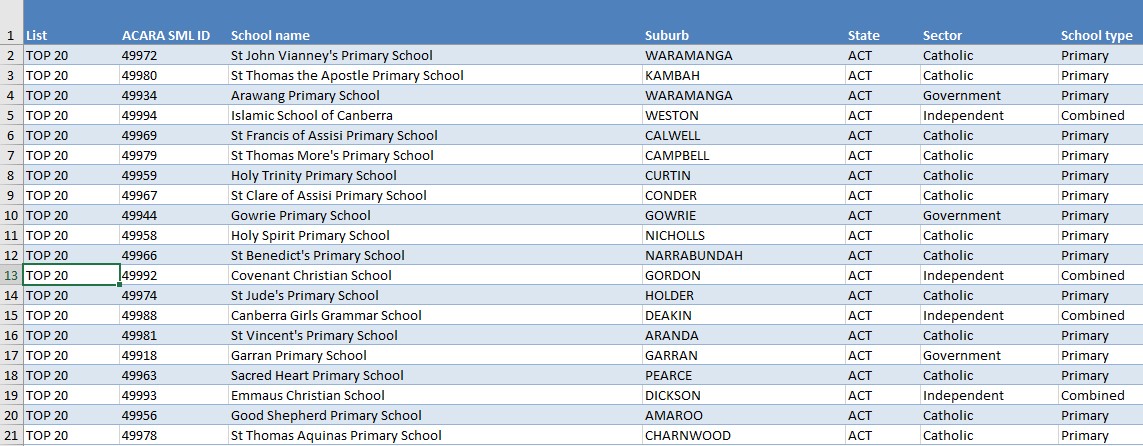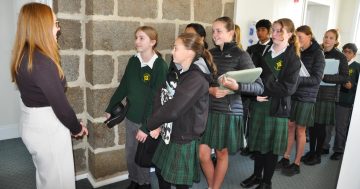
St Clare of Assisi Primary School principal Matt Egan-Richards observes a Year 3 paired fluency lesson where one student reads a passage while a partner follows and provides help if needed. Photo: Kylie Coll/Catholic Education.
Catholic primary schools have dominated the top 20 places in the My School rankings for the ACT out today, attributing their success to the Catalyst explicit teaching program instituted three years ago.
The Australian Curriculum, Assessment and Reporting Authority (ACARA) My School website has been updated today with 2024 NAPLAN data and other school information for parents to view.
Its rankings are based on an Index of Community Socio-Educational Advantage (ICSEA), which indicates the average educational advantage of each school’s students.
Thirteen out of the 20 ACT schools are run by Catholic Education Canberra and Goulburn, which director Ross Fox said was an exciting endorsement of what their teachers and principals were doing.
Mr Fox said the overwhelming majority of CECG schools had embraced Catalyst, and they were now seeing the results.
“But we don’t think we’re finished in terms of the improvement we can pursue and the high aspirations we can have for students,” Mr Fox said.
“We’ve got access to other data that’s very encouraging about the impact on achievement we’re having in the early years, and we think over time we’ll see that advancement in learning consolidate and result in higher achievement in later years.”

St Clare of Assisi Primary School in Conder, which ranked eighth, started its explicit learning journey, including phonics, five years ago, but joined its fellow schools when Catalyst was adopted.
Principal Matt Egan-Richards said he had identified shortcomings in reading and writing, but since taking up a more systemic and high-impact approach, first with one program and then Catalyst, there had been a steady, although not always linear, improvement.
Mr Egan-Richards said that by the time kinder children got through to year three, teachers were finding they had a much higher skill base to work with.
“So we can spend more time on exploring other things and learning other things rather than having the biggest focus on learning literacy,” he said.
The school’s teacher-librarian had also reported a wider range of books being borrowed because children were keen to explore more challenging reads.
Mr Egan-Richards said there were also fewer behavioural issues in the classroom due to a more structured approach and settled routine, and children having learning success.
He said revision also played an important role in the school’s learning approach.
“Part of what we do now is we’re very aware that you can’t move on until you’ve revised it, touched over it, reviewed it several times,” Mr Egan-Richard said.
That process occurred with decreasing frequency over the year.
Mr Egan-Richards praised Catholic Education for its research, curriculum materials, and support from external coaches.
“It’s great to have people who are knowledgeable and experienced and know the research to come in and actually spend one-on-one time with our teachers in our classrooms,” he said.
Teachers also worked collaboratively, discussing how their students were progressing, asking questions such as: what haven’t they learned? What do they need to learn? How are we going to make sure they learn it?
Mr Fox said the My School list reflected the improvement that CECG schools had seen, the engagement of its teachers in professional learning, their change to practice, the curriculum support put in place and the efficient assessment.
“So, yes, we’re making good progress in that way,” he said.
Mr Fox also noted the context of the My School list and the wide geographic range of the schools on it.
“I’m really excited that it’s not the community or the socio-economic background that should determine academic results. It’s the quality of the teaching. It’s the learning of the students,” he said.





















